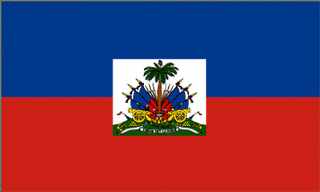The Russian Gas monopoly Gazprom intends to take action in order to force The Ukraine to pay for gas and stop the country from exporting it to Europe.
Published:
7 July 2000 y., Friday
Russian deputy Prime Minister Viktor Khristenko has reported that gas deals between the two CIS members are to be radically revised and a new payment procedure is to be introduced soon. By October 1st this year, the Russian government will have prepared a set of documents regulating gas transactions between the two states. Judging from the published excerpts from those documents, Russia will no longer tolerate The Ukraine’s non-payment and gas theft.
Firstly, to stop gas deliveries through The Ukraine would mean loosing lucrative contracts with Germany. Secondly, Kiev has cunningly managed to use Gazprom’s and the Russian authorities’ interests to suit its own ends, by promising the Kremlin that The Ukraine could delay its bid to enter NATO. The Russian authorities willingly bought these promises.
Politics aside, there were also economic reasons for Russia’s lenience towards The Ukraine. Gazprom has always acted as a private legal entity, although the Russian government holds a 41% stake in the gas giant. However, Gazprom continuously delayed tax payments, omitted dividends, and state representatives were given a disproportionately low share of the seats on Gazprom’s board of directors.
The government therefore did not take great pains to defend Gazprom’s interests.
Russia also insists that The Ukraine should stop illicit gas deliveries to Europe. The problem is that The Ukraine purchases Russian gas on favorable terms, regularly delays payments to Gazprom and then resells gas at high European prices, thus disrupting the stability of European gas supplies.
Šaltinis:
Internet
Copying, publishing, announcing any information from the News.lt portal without written permission of News.lt editorial office is prohibited.
The most popular articles
 In its first meeting in 2010, the Gas Coordination Group, under the chairmanship of the Commission, has focused today on the assessment of the situation on security of gas supply in the EU-27 and countries of the Energy Community and discussed priorities for the work of the Group in 2010.
more »
In its first meeting in 2010, the Gas Coordination Group, under the chairmanship of the Commission, has focused today on the assessment of the situation on security of gas supply in the EU-27 and countries of the Energy Community and discussed priorities for the work of the Group in 2010.
more »
 Luc Van den Brande, President of the EU Committee of the Regions (CoR), has used his first meeting with the President of the European Council, Herman Van Rompuy, to underline the importance of consultation between local, regional and national authorities.
more »
Luc Van den Brande, President of the EU Committee of the Regions (CoR), has used his first meeting with the President of the European Council, Herman Van Rompuy, to underline the importance of consultation between local, regional and national authorities.
more »
 Basile Nkwesi, Directeur Commercial of Multiprint, speaks for dozens of frustrated business managers in this busy enterprise center when he talks about Cameroon’s costly and unreliable electricity.
more »
Basile Nkwesi, Directeur Commercial of Multiprint, speaks for dozens of frustrated business managers in this busy enterprise center when he talks about Cameroon’s costly and unreliable electricity.
more »
 During 2009, over 2400 new corporate clients, whose total number currently exceeds 16 thousand, began using Bank SNORAS services.
more »
During 2009, over 2400 new corporate clients, whose total number currently exceeds 16 thousand, began using Bank SNORAS services.
more »
 In 2009, the European Investment Bank (EIB) provided EUR 2.5 billion in 16 credit lines for financing the investment projects of SMEs (EUR 1 955 million) and local authorities (545 million) in Spain.
more »
In 2009, the European Investment Bank (EIB) provided EUR 2.5 billion in 16 credit lines for financing the investment projects of SMEs (EUR 1 955 million) and local authorities (545 million) in Spain.
more »
 In 2009, the number of counterfeit euro coins removed from circulation was 172 100, down from 195 900 the year before.
more »
In 2009, the number of counterfeit euro coins removed from circulation was 172 100, down from 195 900 the year before.
more »
 Haiti began participating in the International Monetary Fund’s General Data Dissemination System on December 28, 2009, marking a major step forward in the development of its statistical system.
more »
Haiti began participating in the International Monetary Fund’s General Data Dissemination System on December 28, 2009, marking a major step forward in the development of its statistical system.
more »
 According to the data of NASDAQ OMX Vilnius Stock Exchange, the price of Bank SNORAS registered ordinary shares grew by more than 2.5 times.
more »
According to the data of NASDAQ OMX Vilnius Stock Exchange, the price of Bank SNORAS registered ordinary shares grew by more than 2.5 times.
more »
 The European Commission has cleared under the EU Merger Regulation the proposed acquisition of Cadbury PLC of the UK by Kraft Foods Inc. of the US by way of public offer.
more »
The European Commission has cleared under the EU Merger Regulation the proposed acquisition of Cadbury PLC of the UK by Kraft Foods Inc. of the US by way of public offer.
more »
 Statistics Lithuania informs that construction input prices inNovember 2009, against October, dropped by 0.5 percent.
more »
Statistics Lithuania informs that construction input prices inNovember 2009, against October, dropped by 0.5 percent.
more »